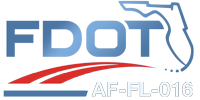Florida’s infrastructure relies on durable, high-quality materials to withstand its unique climate and heavy usage. Aluminum, known for its strength, corrosion resistance, and lightweight properties, is a top choice for pipes, tubes, sheets, and structural shapes in transportation projects. However, the Florida Department of Transportation (FDOT) mandates strict guidelines for materials and fabrication processes. This article explains FDOT-approved aluminum products, certified production facilities, and key compliance details for contractors and engineers statewide.
Why Use FDOT-Approved Aluminum Materials?
FDOT ensures all materials meet rigorous standards for safety, durability, and performance. Aluminum is ideal for Florida projects due to:
- Corrosion Resistance: Withstands saltwater exposure in coastal regions like Miami and Tampa.
- Lightweight Design: Reduces structural load in bridges, signage, and drainage systems.
- Longevity: Minimal maintenance for highways, guardrails, and marine structures.
- Sustainability: 100% recyclable, aligning with Florida’s eco-friendly initiatives.
Using non-compliant materials can lead to project delays, fines, or failures. Always verify FDOT-approved production facilities and materials before procurement.
FDOT Approved Production Facilities: What You Need to Know
1. What is an FDOT Certified Production Facility?
An FDOT Certified Production Facility is a manufacturing plant audited and approved by the Florida DOT to produce materials like aluminum pipes, tubes, and structural shapes. These facilities must follow strict quality control (QC) plans to ensure products meet FDOT specifications.
2. How to Find FDOT-Approved Production Facilities
The FDOT maintains an official Approved Product List (APL), which includes:
- Names and locations of certified facilities.
- Approved materials (e.g., aluminum grades 6061 or 6063 for structural shapes).
- Expiration dates of certifications.
Example of FDOT-Approved Facilities in Florida:
- Miami Aluminum Fabricators (Specializing in marine-grade aluminum tubes).
- Orlando Structural Metals (FDOT-certified for bridge components).
3. FDOT’s Role in Quality Control
FDOT requires certified facilities to submit a Producer QC Plan detailing:
- Testing procedures for raw materials.
- In-process quality checks.
- Final product inspections.
- Compliance with ASTM or AASHTO standards.
FDOT’s production and construction operations team updates these plans annually to reflect new technologies or regulations.
FDOT Aluminum Fabrication in the USA
While many facilities operate in Florida, FDOT also approves aluminum fabrication companies across the USA if they meet state-specific criteria. Key considerations include:
- Material Traceability: Documentation proving aluminum sources and processing.
- Third-Party Testing: Independent labs validate strength, weldability, and corrosion resistance.
- FDOT’s Approved Product List (APL): Always cross-reference materials with the APL before purchasing.
Lifecycle of an FDOT Project
Understanding the timeline ensures smooth execution:
- Design Phase: Engineers specify FDOT-approved aluminum materials.
- Bidding & Approval: Contractors submit bids using certified suppliers.
- Fabrication: FDOT Certified Production Facility manufactures components.
- Construction: Installation by FDOT-approved contractors.
- Inspections & Maintenance: Regular checks for compliance and safety.
Most FDOT projects have a lifecycle of 20–50 years, depending on the structure (e.g., bridges vs. signage).
FAQs About FDOT-Aluminum Compliance
Q: How often is the FDOT Approved Product List updated?
A: The APL is updated quarterly. Always download the latest version from FDOT’s portal.
Q: Can out-of-state facilities become FDOT certified?
A: Yes, if they pass FDOT audits and submit a compliant QC plan.
Q: What happens if non-approved aluminum is used?
A: FDOT may reject the project, leading to costly rework or legal penalties.
Q: Does FDOT approve recycled aluminum?
A: Yes, if it meets ASTM standards and is sourced from a certified production facility.
Conclusion: Partner with FDOT-Certified Experts
Using FDOT-approved aluminum materials and certified production facilities is non-negotiable for Florida infrastructure projects. From pipes and tubes to complex structural shapes, compliance ensures longevity, safety, and cost-efficiency. Always:
- Verify materials against the FDOT Approved Product List.
- Choose suppliers with FDOT Certified Production Facility status.
- Contact FDOT directly for the latest QC plans or certifications.
By adhering to these guidelines, contractors contribute to Florida’s resilient and sustainable infrastructure.



